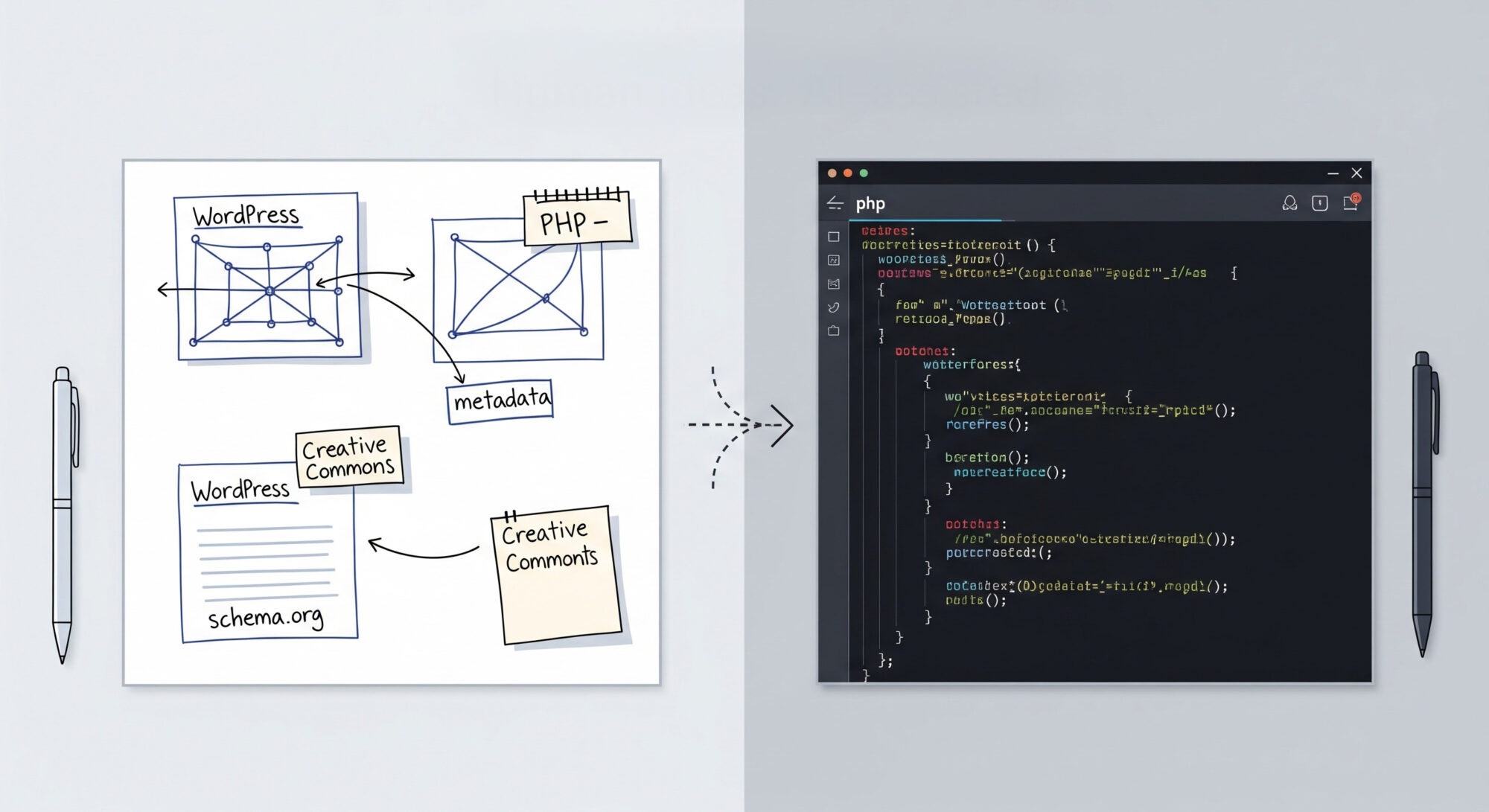
Experimenting with AI-supported coding
While working on my photolog, I encountered a recurring issue with the metadata for my photos. WordPress handles image management well enough, but it lacks adequate support for photographer credits and Creative Commons licensing information that search engines can parse systematically. I found some really helpful plugins, but—at least with their free versions—couldn’t achieve exactly what I was looking for. So, I decided to take matters into my own hands.
Rather than learning PHP from scratch, I decided to experiment with AI assistance to develop two WordPress plugins that address different aspects of metadata and identity management. These plugins were created through iterative use of AI coding assistants, with human oversight for functionality, testing, and refinement. The process revealed how accessible plugin development has become also for non-programmers.
I recognise this approach has limitations and potential drawbacks. However, I believe learning through direct experience provides valuable insights—probably more importantly on AI than on WordPress plugins or PHP.
This blog post was created with AI assistance as well. The ideas and thoughts are mine. AI formulated an initial draft, which I then edited and refined.
The plugins
Adding metadata and licences for my photolog
As mentioned, this plugin emerged from a specific need in my photography workflow. When publishing images on my photolog, I want to ensure that the Creative Commons attribution information is embedded in a machine-readable format that search engines can understand and index appropriately.
The plugin integrates with the widely used Advanced Custom Fields plugin to capture essential metadata for each photo. There you can specify, for example, the photographer’s name and website, select from standard Creative Commons licence types, and optionally provide the Creative Commons licence URLs. Based on this, my plugin automatically generates the relevant Schema.org ImageObject markup for these images whenever they appear in the designated blog categories, such as my photolog.
The complete source code for the ACF Photo Credits Schema plugin is available on GitHub.
Structured data for connecting online profiles
The second plugin addresses a different challenge. Many of us maintain profiles across multiple platforms—ORCID for scholarly work, Google Scholar for publications, GitHub for code repositories, LinkedIn for professional networking, etc. The ‘sameAs’ property in Schema.org provides a standardised way of declaring these connections in machine-readable form.
The plugin generates markup for a person or organisation that includes a sameAs array linking to external profiles. This helps search engines understand the relationship between a website and its owner’s broader online presence, potentially improving search result accuracy and professional discoverability.
The Generic sameAs Schema plugin source code is available on GitHub.
Understanding AI through hands-on experience
Both plugins were developed primarily through the iterative use of AI coding assistants. Starting with functional requirements, I described desired behaviours and received working PHP code that follows WordPress coding standards.
The plugin development process illustrated both the potential and limitations of AI-assisted coding. AI is changing many aspects of our work and daily lives, making it worthwhile to engage with the technology on multiple levels. Whilst we cannot all become AI developers, experimenting with AI tools provides valuable insights into their capabilities and constraints.
I welcome discussion and feedback on the technical aspects and broader implications of AI-assisted coding and working.
Code: ACF Photo Credits Schema & Generic sameAs Schema (GitHub, MIT Licence)
Leave a Reply